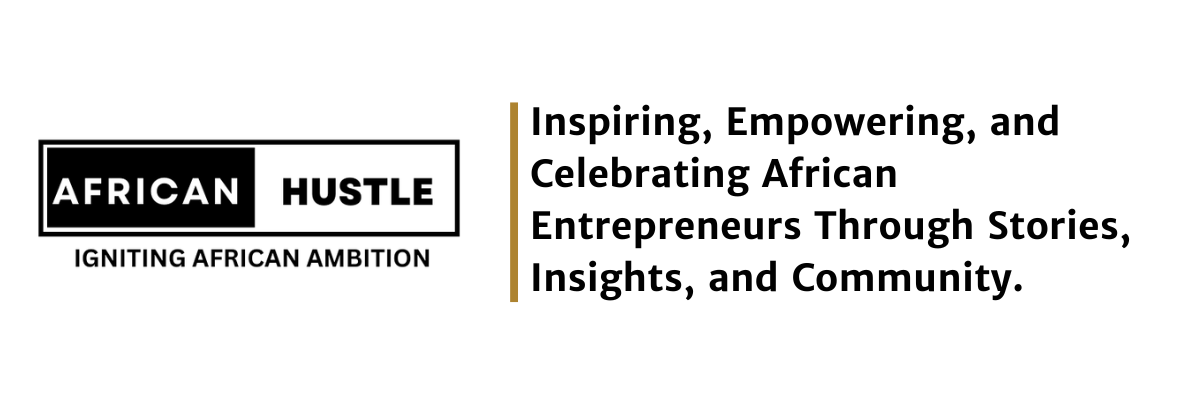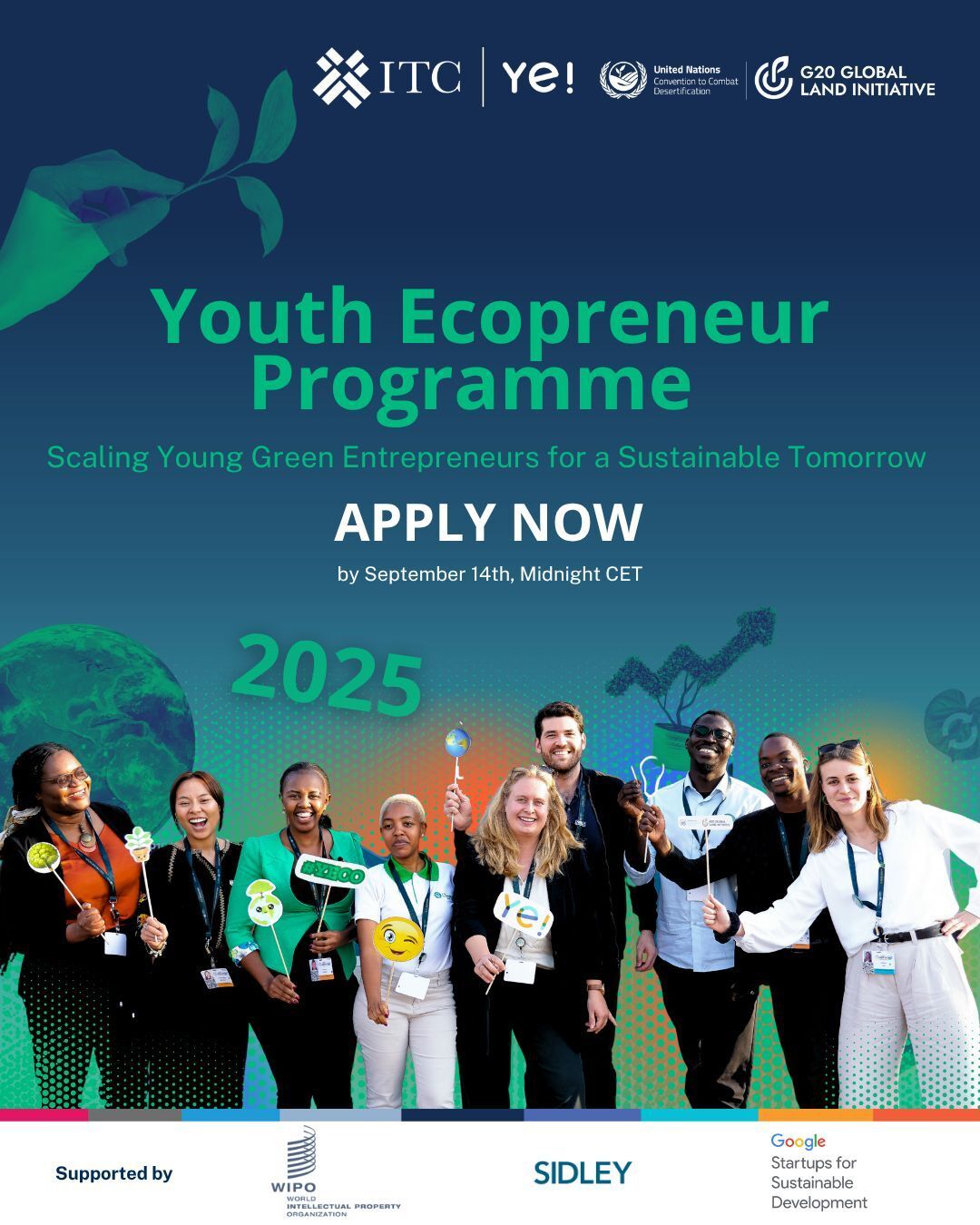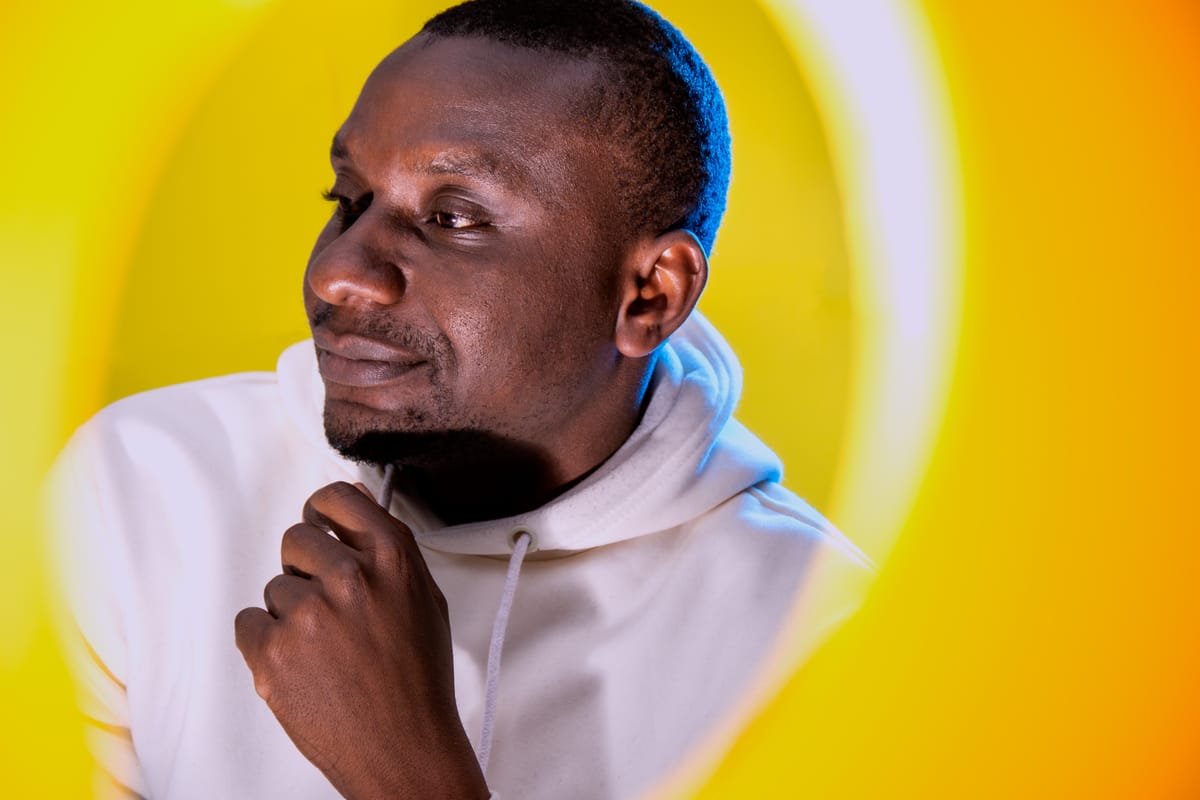
Welcome to African Hustle! Your weekly dose of inspiration and smart insights into African entrepreneurship — featuring real stories about tech, culture, startups, founders, and innovations shaping the future of the continent.

Did You Know
OpenAI will soon be more valuable than Walmart. Yes, Walmart, with its nearly $1 trillion in annual revenue, a market cap of around $500 billion, over 10,000 stores and 2 million employees. Less valuable than an AI company with fewer than 3,000 employees and just 9 global offices. The direction of influence is shifting from the physical economy to the digital future.
Feature Story
Rethinking Africa’s Economic Loyalties
I’m reminded of the time African Presidents were packed into a bus, like kindergarten kids, at Elizabeth's funeral. You might know Elizabeth as the late Queen of the United Kingdom and a symbolic figurehead of colonial rule.
They said it was a logistics necessity.
But for me, it was symbolism.
It was a symbol of how Africa is seen, managed, grouped, and treated as an afterthought in global affairs.
A visual reminder of how far we are from being treated as equals on the world stage.
We are getting bused to perdition, like sheep being led to the slaughter.
And what’s worse? We keep celebrating invitations we never extended. Smiling in rooms we were barely allowed into. Applauding recognition from systems that once exploited us and still do.
The longer we ride in buses we didn’t charter, headed to destinations we didn’t choose, the more we forget that we were meant to be drivers and arbiters of our destinies.
Africa can no longer afford to be polite about its place in the global economy.
And the African entrepreneur has a role to play. To rebuild what was neglected, to reimagine what is possible, and to realign Africa’s future with its vision, not the Western roadmap.
Recent events have further fueled my sense of disappointment with African leadership on the global stage. One such instance this year was the meeting between U.S. President Donald Trump and the leaders of five West African nations.
It was not a meeting but a carefully staged public humiliation of African Presidents, our Presidents.
During the so-called meeting, the African leaders wooed Trump with banal platitudes, giggly humming praises of his perceived peace efforts. This occurring against the sponsored hostilities in the Middle East is an insult to humanity!
Yet I couldn’t even be angry as I felt the helplessness.
There are entrepreneurs whose export businesses are now at risk due to the U.S tariff regime. There are public hospitals and clinics running out of resources, places that once depended on USAID funding and donated medicines.
Real people are getting hurt.
So I felt the pain behind the handshakes and smiles of the African Presidents as they paraded like clowns in a colonial theatre, strutting for pictures in the Oval Office, where nothing fertile was birthed.
This is not about politics.
This is about power and how Africa keeps giving it away.
This month, the U.S slapped a 30% tariff on South African goods, crippling major sectors like agriculture, steel, and automotive parts.
In 2024, South African exports to the US stood at US$8.21 billion. It’s quite a big number, but not big enough to be a death sentence. Especially when you look at South African exports to SADC, which so happens to be its biggest trading partner.
SADC Country | Exports Value |
|---|---|
Mozambique | $6.57 billion |
Botswana | $4.33 billion |
Zimbabwe | $4.00 billion |
Namibia | $3.85 billion |
Zambia | $3.04 billion |
Eswatini | $1.69 billion |
Lesotho | $1.46 billion |
Democratic Republic of Congo | $1.36 billion |
Tanzania | $544.26 million |
Malawi | $514.74 million |
Angola | $369.72 million |
Madagascar | $236.43 million |
Seychelles | $65.45 million |
Comoros | $3.98 million |
(Source: United Nations COMTRADE database on international trade. 2024)
SADC, not the United States, is South Africa’s largest trading partner.
Pause for a moment and let that sink in.
Yet somehow, we chase after markets that treat us as disposable, while ignoring those with cultural proximity, logistical ease, and untapped potential.

Source: The World in Maps
South Africa, and Africa at large, face a strategic dilemma: align with US industrial policy or forge independent competitiveness.
And we, African entrepreneurs, must wake up to the reality of dependency. If you’re building a business that relies entirely on American or European supply chains, customers, or aid, you are vulnerable.
The ripple effects of geopolitics will always reach your doorstep.
We cannot build businesses that collapse every time Trump has a tantrum.
We must:
Re-orient trade within Africa: The AfCFTA exists. Regional trade blocs exist. Why aren’t we prioritising them?
Build resilient value chains: Invest in local sourcing. Reduce foreign currency risk.
Grow intra-African demand: When our neighbours get wealthier, our markets grow. When we uplift Zimbabwe, Lesotho, and Zambia, we uplift ourselves.
Stop chasing approval: Our Presidents should not need to beg for validation from men who think “you speak good English” is a compliment.
For so long, and for so little, we exported raw materials. We chased the dollar and neglected the kwacha, the pula, the rand, the naira.
We turned our back on regional integration because it was harder work. Because it didn't look glamorous on the foreign media portals like BBC and CNN.
Now we’re paying the price.
If we don’t trade with each other, grow with each other, and stand up for each other, we’ll always be one policy away from crisis.
Maybe it’s time we all learned a thing or two from Namibia. A few months ago, many predicted doom for Namibian tourism after the country imposed travel visa requirements on citizens from the U.S. and the EU.
The critics said it was economic suicide. They said tourism would collapse.
But guess what?
Just four months later, Namibia has welcomed over 70,000 visitors.
Sometimes, standing your ground doesn’t hurt your position; it strengthens your sovereignty.
Namibia made a decision rooted in reciprocity - we pay for visas to come to you, so pay to come to us.
There’s a lesson there for African nations and us, African entrepreneurs, alike.
Inspiration Corner
DJ Sbu: Building a Business with Zero Capital
Many African entrepreneurs are held back by the belief that they can’t start without funding. DJ Sbu, entrepreneur, media personality, and founder of MoFaya Energy Drink, disagrees.
In a recent conversation, DJ Sbu shared a story about two young hustlers who approached him with a bold vision to start a property company: Ekasi Noble Properties.
They had no money, no land, no formal background.
What they did have was belief, clarity, and commitment.
Their pitch was so compelling that DJ Sbu backed them. Today, they run a successful multi-development property business.
The experience reaffirmed this truth: "It’s not capital that gets you started, it’s clarity, confidence, and conviction."
Your vision is your seed. Start planting.
Opportunity Alert
Africa’s Greatest Threat is Also Its Greatest Opportunity
By 2055, Africa will have the largest child population in the world, over 1 billion children.
31 million children under 5 could die between 2018 and 2030 if current healthcare gaps persist.
Millions more teachers and health workers are needed by 2030 to meet demand.
This is not a government problem alone. It’s a market opportunity and one of the most urgent, impactful ones of our time.
The Opportunity
Africa needs new institutions. This is the time to build public-private partnerships (PPPs), social enterprises, and scalable infrastructure businesses in:
EdTech – teacher training, AI tutoring, early childhood content
HealthTech – community care models, diagnostics, mobile clinics
Training & Certification – fast-track health and education professionals
School construction & education franchising
Affordable insurance & maternal care solutions
Why This Matters for You
Governments are overwhelmed.
NGOs can’t scale fast enough.
The private sector can build smarter, faster, and sustainably with impact.
If you want to build a billion-dollar business in Africa, solve for the next billion kids.
Inside Scoop
Nedbank Top Empowerment Conference
Last week, I had the pleasure of attending the Nedbank Top Empowerment Conference, which was themed - Bold Transformation.
Here are the takeaways:
Talk less. Do more. Sometimes all it takes is a voice, but it must lead to action.
Inclusion isn’t charity. You can be profitable and inclusive.
Honour the past, build the future. Africa is emerging from a history of deliberate exclusion. Transformation means fixing that legacy without forgetting it.
Transformation is not remote-controlled. You can’t drive change from a boardroom; you need proximity.
Comfort is a trap. If everyone around you looks like you, thinks like you, and agrees with you, you’re not transforming anything.
No transformation without new enterprises. The economy won’t shift unless we build new, inclusive businesses.
Unemployment is an economic issue. To solve it, grow the economy, full stop.
Intentions don’t count. What matters is action. Rhetoric doesn’t change systems; systems do.
The conference foregrounded the message that businesses can and must be both profitable and inclusive. It emphasised that Africa’s historical legacy of deliberate exclusion continues to shape economic structures today. Yet, we must build future pathways grounded in both remembrance and innovation.
Africa is coming from a history of systemic exclusion. Transformation must not merely correct the past, it must embed new structures of inclusive growth.
Book Byte
Rework
By Jason Fried & David Heinemeier Hansson
Rework shows you a better, faster, easier way to succeed in business.
Some Insights:
Cut non-essential features and keep both products and processes as simple as possible.
Only hold meetings when necessary and ensure they’re short, focused, and purposeful.
Rather than obsessing over competitors, invest your energy in improving your business and customer experience.
Founder Insights
What DJ Sbu Wants Every Entrepreneur to Know
Here’s DJ Sbu’s no-BS framework for building from nothing:
Reframe Failure: It’s not failure. It’s tuition. Learn, adapt, and keep moving.
Stop Chasing. Start Aligning: You attract what you are. Build yourself, and the right opportunities will come.
Raise Your Frequency:
Read every day
Listen to audiobooks
Prioritise your health
Follow people who inspire growth
Lead With Vision: Don’t wait for money. Start with action. Clarity opens doors.
If your vision is clear, people will follow, even if your bank account is empty.
Hustle Trivia
Which African country was the first to adopt a national digital currency?
Nigeria adopted the eNaira in October 2021Community Billboard

Are you building a business that restores the planet? The Youth Ecopreneur Programme 2025 is your gateway to global recognition, expert support, and funding.
Deadline: 14 September 2025
Here’s what’s in it for you:
Capacity-building to scale your venture
Seed funding ( $100,000 equity-free pool for land restoration cohort)
Free Legal and IP guidance
Preferential access to pro bono legal support and Google’s Startup for Sustainable Development Programme
All-expenses-paid trip to pitch at an international conference
$10,000 cash prize for each Youth Ecopreneur Award winner
Market linkages and investor connections to take your business global
A joint initiative by the International Trade Centre and G20 Global Land Initiative, the programme is open to entrepreneurs under 35 with a green business or land-restoration business.
Word on the Street
As of April 1, 2025, Namibia ended visa-free entry for 33 countries that require visas from Namibians, including the U.S. and several European nations. Since then, it has earned nearly $10 million in visa fees.
America has imposed a visa bond of up to US$15,000 on Malawians and Zambians wishing to visit the United States for business or tourism. If you are poor and African, America is not for you.
Zambia and Botswana will soon use IDs, instead of passports, for cross-border travel between the two countries.
South Africa is being bullied by the USA for being a member of BRICS. As it cowers, India is sticking to its guns and refusing to stop importing Russian oil.
Strategies & Philosophy
Prioritise speed to market over perfect planning
Avoid fully fleshed-out early business plans; be ready to pivot as you learn from market and user feedback.
Hustler’s Cheat Sheet
3 Risk‑Reduction Moves for Any Entrepreneur
Build alternative revenue streams
Invest early in customer data systems
Reserve emergency cash reserves equal to 2 months of fixed costs
ShoutOut
Meet Fatima Tambajang

Fatima Tambajang: Image - NVIDIA Blog
Fatima Tambajang leads Developer Relations for Startups and VCs across Africa and the Middle East at NVIDIA. She supports developers and startup ecosystems by providing access to tools, training, and partnerships to build impactful AI solutions.
Her work has been featured in TIME, BBC, Forbes, and Copenhagen Fintech Week.
Before NVIDIA, she managed a global accelerator working with startups in Egypt, Ghana, Kenya, Nigeria, Senegal, and South Africa.
Fatima holds a Master’s in Economics and Global Development from the University of Copenhagen.
Afrofact
By 2050, 1 in 4 people in the world will be African, and by 2035, more young Africans will enter the workforce each year than in the rest of the world combined.
Weekly Challenge
Identify one data or digital tool you can integrate into your workflow.
Proverb of the Week
Knowledge that is not acted upon is like a seed left in the dry ground.
Enjoyed this post? Share it with someone who might find it helpful and encourage them to subscribe!
If we missed something, we’d love to hear from you — hit reply and let us know what insights you want us to dive into next.
And if this email was forwarded to you, you can sign up here!

